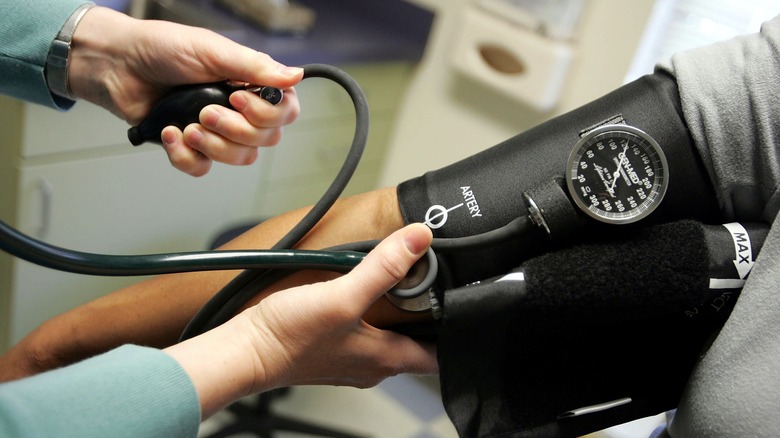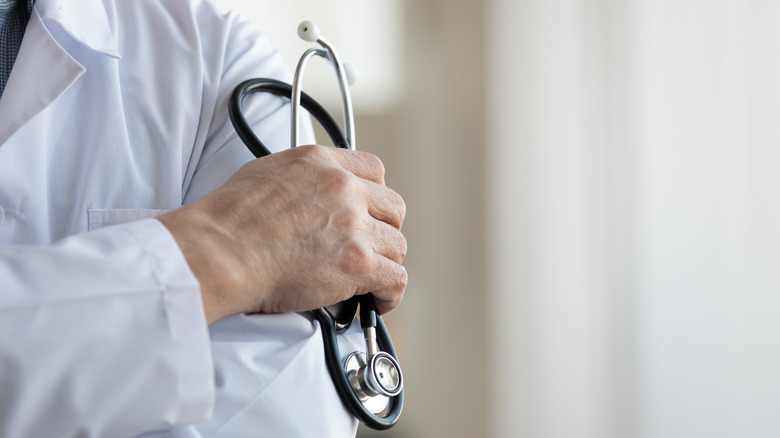You Might Have High Blood Pressure If This Happens To You
Heart disease is the number one cause of death in America. The CDC is emphatic on that point. So it makes sense that people would want to know the warning signs and symptoms, especially for high blood pressure. It is one of the clearest warning signs that you're on your way to heart problems. So knowing the symptoms of high blood pressure can help catch the problem before it's too late.
That's the theory, anyway. Urban legends abound, claiming that certain symptoms are sure-fire indicators of high blood pressure. Everything from frequent dizziness to nosebleeds to headaches to blood spots in a person's eyes are alleged early warning signs.
And while some of these symptoms might seem logical, none of them are reliable. The medical community refers to high blood pressure as a silent killer because it has no symptoms, not early on. Someone can assume they're at risk for high blood pressure if they have a high body weight, do not exercise regularly, or if they're diabetic, according to the CDC. But the only way to know for sure is to get checked.
The symptoms above are, unfortunately, myths. There is no way to tell except for a blood pressure monitor. Of course some people do experience a sudden headache and nosebleed combination related to blood pressure. But far from being an early warning sign, it could be life threatening.
Hypertensive crisis
High blood pressure is also known as hypertension. And as people with high blood pressure can tell you, headaches and bloody noses aren't all that common, at least not without some other cause. When they happen spontaneously, there is a good chance the person is suffering a hypertensive crisis. And it could be life threatening.
In the event of a hypertensive crisis, a person's blood pressure is higher than 180 over 120, according to the Mayo Clinic and the American Heart Association. A healthy blood pressure, for reference, is lower than 120 over 80. When a person's blood pressure reaches 180 over 120, blood vessels become damaged. They can begin to leak, which affects the heart's ability to do its job.
A hypertensive crisis can have several symptoms including nausea, anxiety, chest pains, headache, blurred vision, and confusion. These are not early warning signs of high blood pressure. They are signs of impending serious and even life threatening issues such as stroke or heart attack.
As the American Heart Association says, don't take the risk. There are no early warning signs for high blood pressure. The only way to tell is to get checked with a blood pressure monitor. Adults 18 to 39 should be checked every other year while adults over 40 should be checked yearly. And if you have a sedentary lifestyle, health issues, or a high body weight, you may want to be checked more often.


